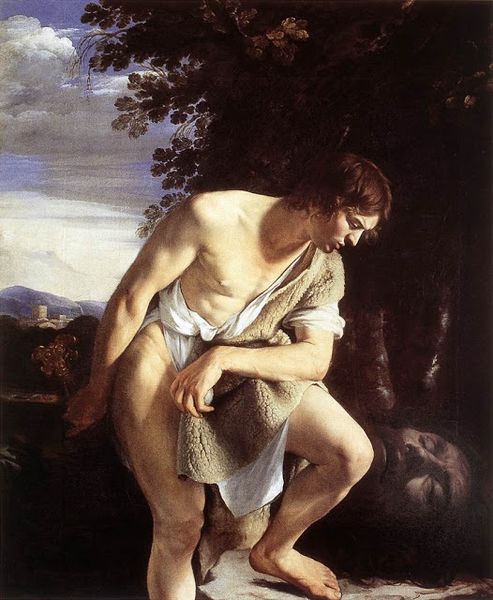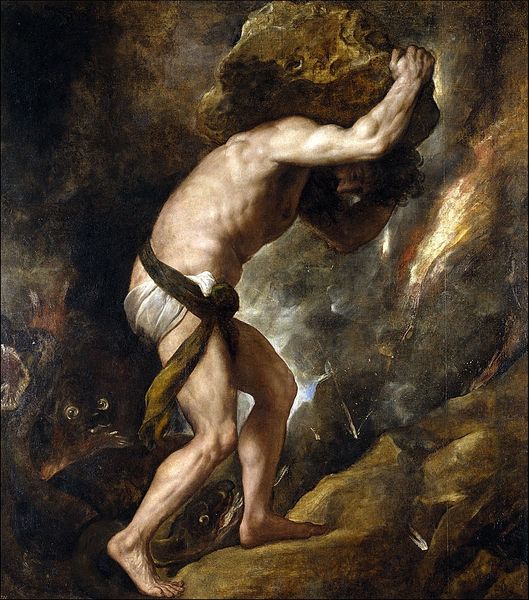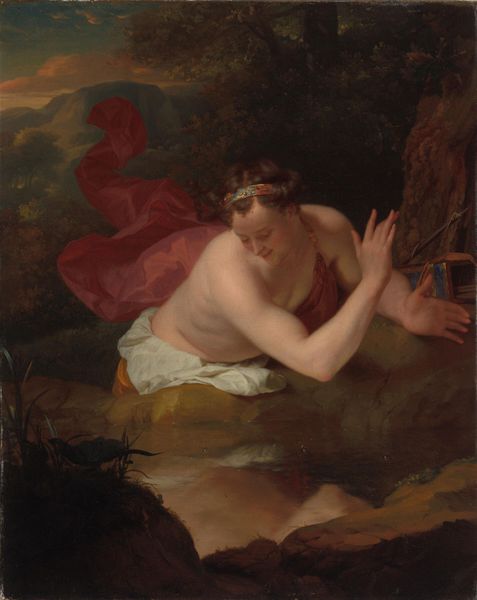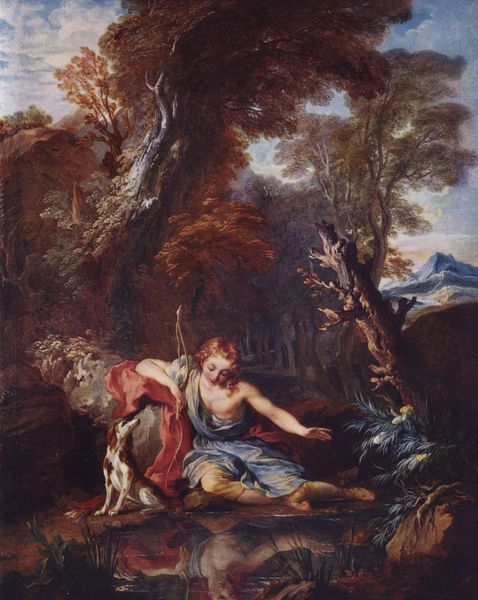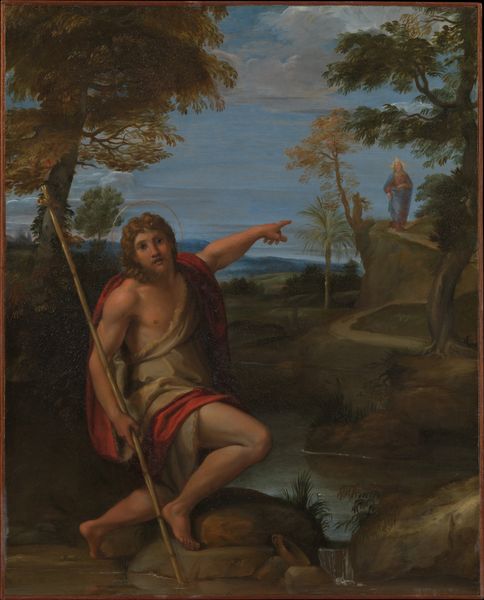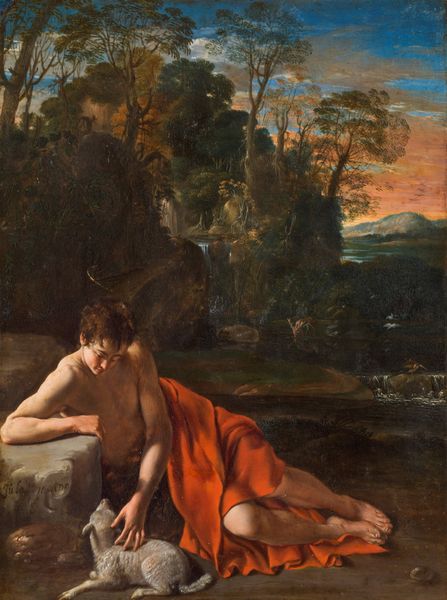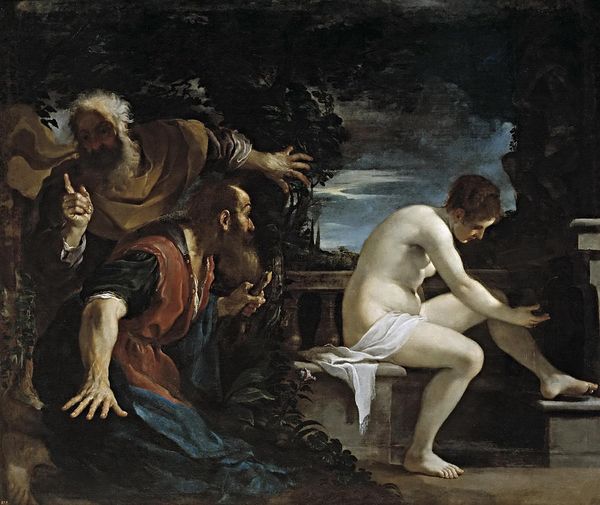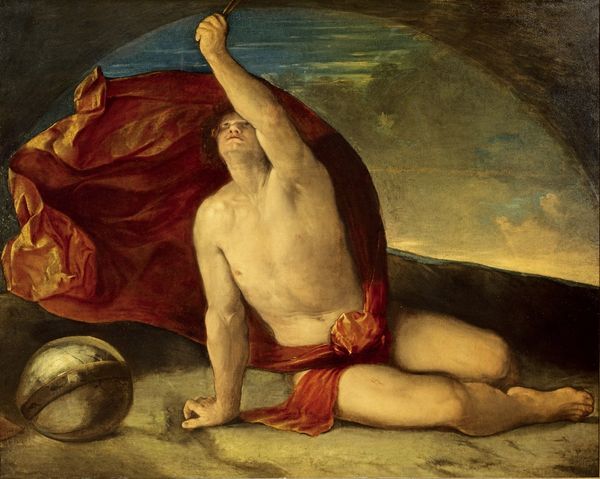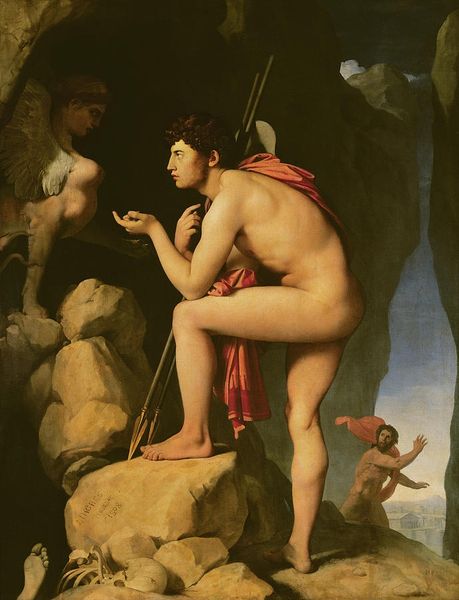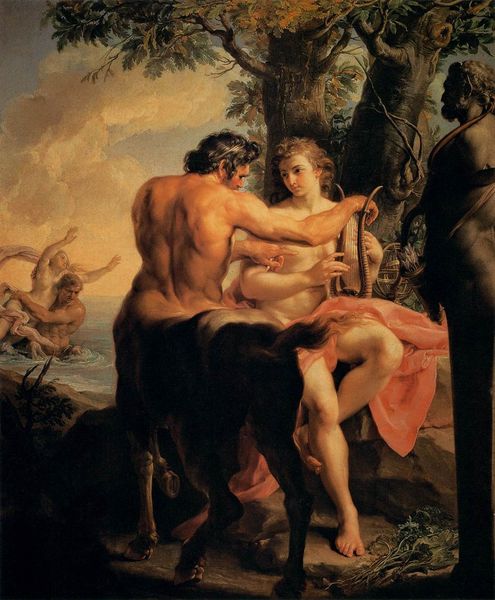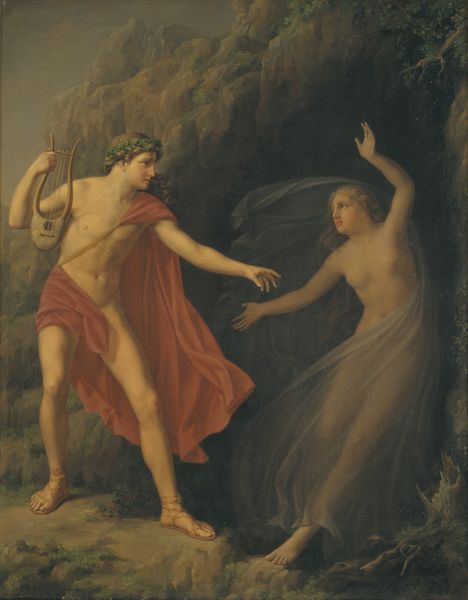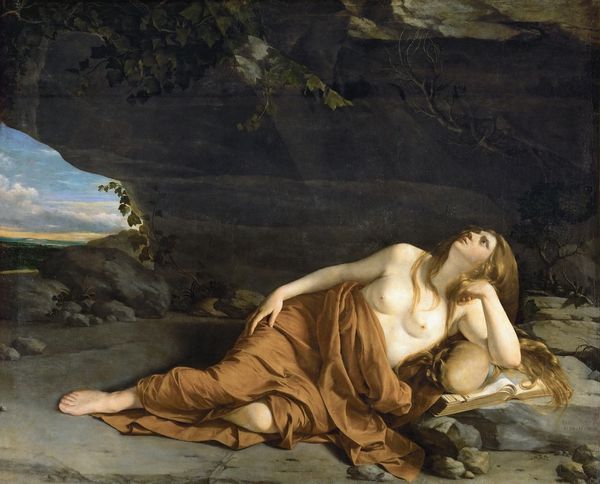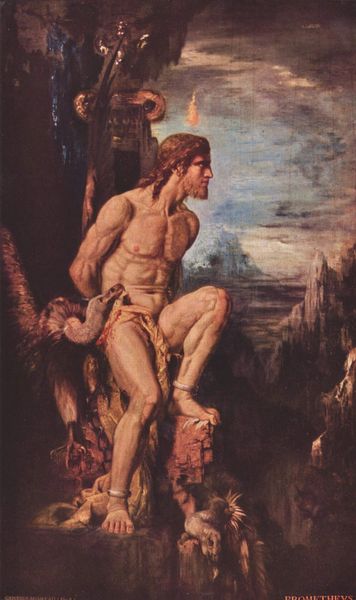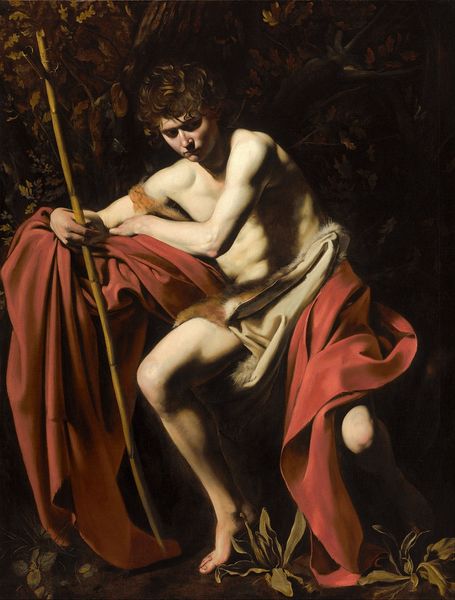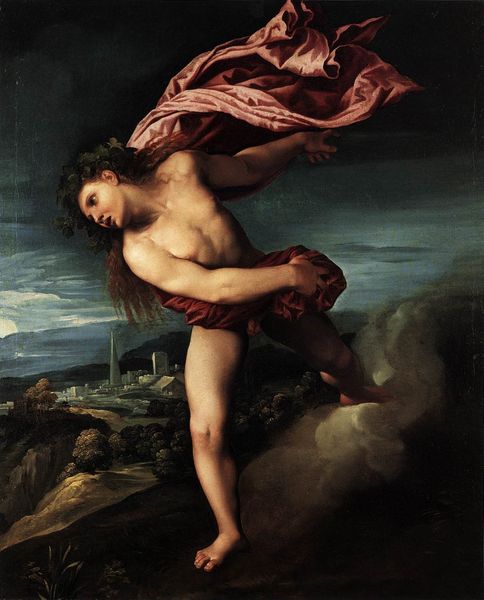
painting, oil-paint
#
portrait
#
allegory
#
baroque
#
painting
#
oil-paint
#
mythology
#
painting painterly
#
history-painting
#
nude
Copyright: Public domain
Jan Cossiers painted "Narcissus" with oil on canvas, immortalizing the tragic figure from Ovid's "Metamorphoses." Narcissus, captivated by his own reflection in the water, embodies the perils of self-obsession. The motif of the reflected image appears throughout art history—mirrors in vanitas paintings reminding us of our mortality, or distorted reflections hinting at inner turmoil, each a variation on the theme of self-awareness. Consider Caravaggio's "Salome with the Head of John the Baptist," where Salome's averted gaze mirrors Narcissus's absorption. It’s a theme of consequence, where beauty and ego lead to dire outcomes. The water, acting as both a mirror and a barrier, suggests the blurred lines between reality and illusion, sanity and madness. Gazing at this image, we confront our own vanities. We recognize Narcissus’s folly as a universal susceptibility, a shared vulnerability to the intoxicating allure of the self. The persistence of this tale speaks to the unchanging depths of human nature.
Comments
No comments
Be the first to comment and join the conversation on the ultimate creative platform.
